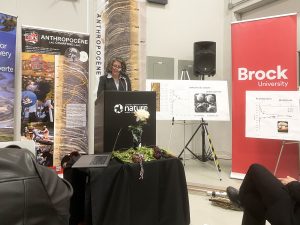Kendra Coulter, Associate Professor in Labour Studies, wrote a piece recently published in The Conversation about the role veterinary forensics play in effective and comprehensive animal cruelty investigations.
Coulter writes:
Many people have seen dramatizations of forensics on shows likes Bones and CSI. Forensics is the application of scientific principles and methods to criminal investigations at crimes scenes and in labs.
In real life, forensic science is being applied to different victims: animals.
Front-line officers undertake the trying, risky and under-valued work of initiating investigations into suspected animal abuse. When crimes are committed against animals, their bodies become evidence. Veterinarians with forensic expertise undertake the intricate work of reading animals’ bodies in detail to find out exactly what was done to them.
At the urging of Beverly McEwen, animal pathologist and adjunct faculty in the Animal Health Laboratory at the University of Guelph, I attended the 12th Annual International Veterinary Forensic Sciences conference. This is not the sort of place you would expect to find a labour scholar.
But I am leading a team studying anti-cruelty enforcement work and policy. We are examining different practices and models to determine which will best protect animals, front-line officers, vulnerable people and public safety. It has become clear to us that veterinary forensics are essential for every jurisdiction committed to effective and comprehensive animal cruelty investigations.
Continue reading the full article here.










